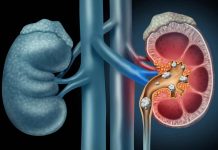
(AscendHealthy.com)- Before we get into the topic of prevention, you should know these 4 things often happen before a heart attack.
- Chest pain. Often a heaviness, pressure or pain in the chest that lasts several minutes possibly coming and going.
- Pressure or pain in other areas of the upper body including one or both arms, back, neck, jaw or stomach.
- Shortness of breath.
- Cold sweat, nausea or lightheadedness.
Know the signs and call 911 if you think you or a loved one could be having a heart attack.
As for prevention, we all know we should be eating balanced, nutritious diets to support our hearts. Living an active lifestyle helps, too. But what else can we do to actively reduce our risk of having a heart attack?
Keep Your Blood Pressure in Check
Our blood pressure readings play a huge role in determining our risk of heart disease. We should be aiming for readings that are 120/80 or lower. Numbers that range from 120/80 to 139/89 are c440onsidered to be “pre” high blood pressure. Anything higher is a sign we’re in the danger zone.
The higher our blood pressure numbers, the harder our hearts have to work to get oxygenated blood to the rest of the body, increasing our risk of a heart attack over time. We can keep our numbers in line by eating a balanced diet, exercising regularly, and managing our stress levels.
Reduce Stress
Researchers have linked stress to heart disease, especially because some of the things we do to cope with stress are not healthy. Drinking, smoking, and binge eating may make us feel better, but in the long-run, they increase our heart attack risks. Sudden, extreme changes in our stress levels can even trigger an immediate attack. Exercise, meditation, yoga, and calming music are all great ways to center ourselves and unwind.
Clock Those Sleep Hours
Sleep deprivation can have a huge impact on our health. A body that doesn’t sleep is in a constant state of stress, which makes it difficult to control our weight and blood pressure numbers. Individuals with sleep apnea have an even greater risk of heart disease and heart attacks because the heart is constantly stressed by the lack of oxygen the body is getting.
Anyone who isn’t getting 7-9 hours of sleep per night should talk to their doctor. In some cases, simple changes to bedtime habits can make a big difference. Others may need testing and treatment for sleep disorders.
While these aren’t the only factors that can contribute to your heart attack risk, they are major players that can be easily controlled. Not sure where to start? Talk to a doctor about assessing your risk factors and developing a plan of action.
Copyright 2023, AscendHealthy.com




















